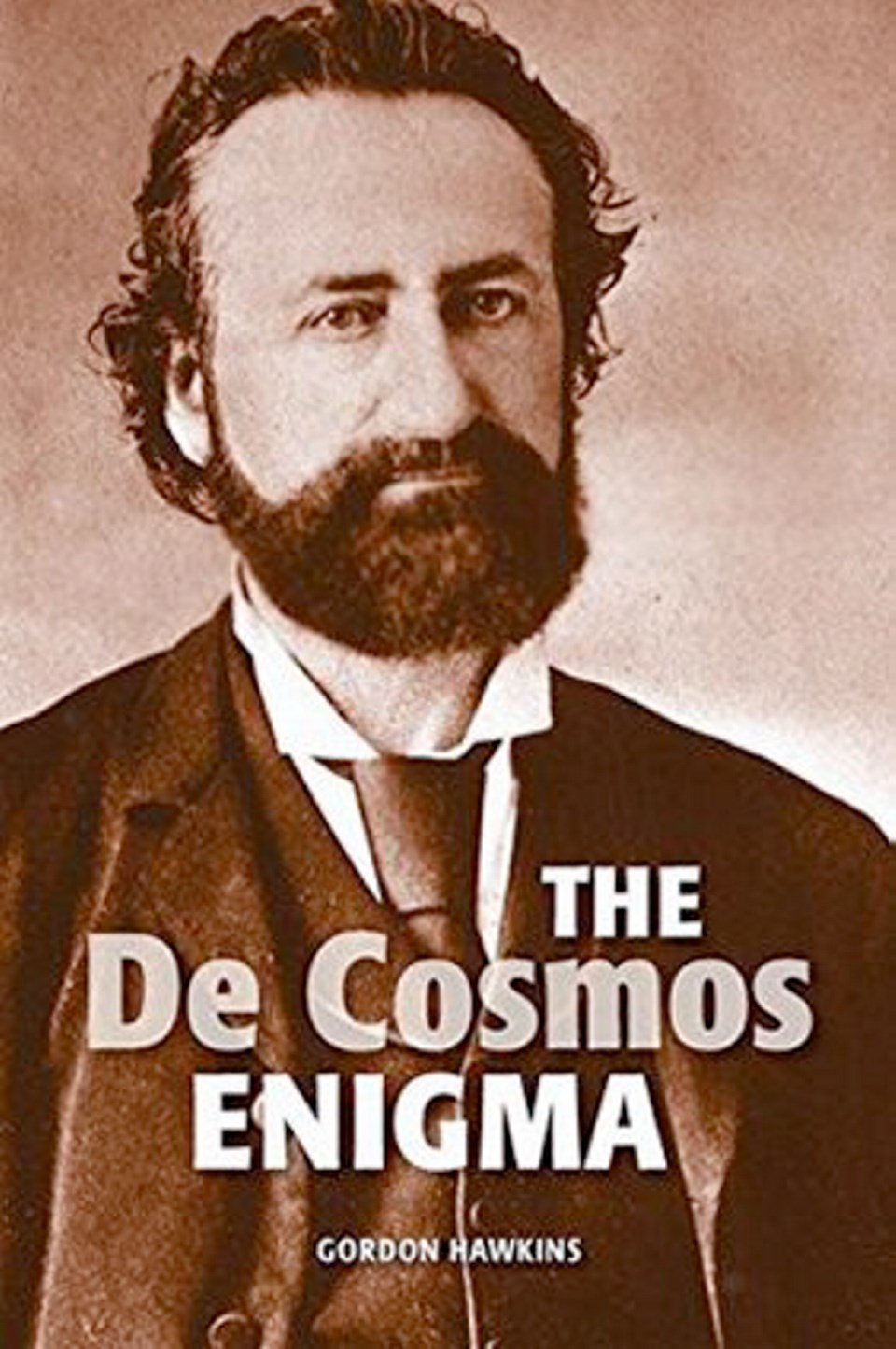The De Cosmos Enigma
By Gordon Hawkins
Ronsdale Press, 170 pp., $17.95
Amor De Cosmos is remembered for many reasons: As the founder of this newspaper, as the second premier of British Columbia, as the man named Smith who fancied a unique name, and as a rather grouchy, anti-social resident of Victoria in the late 1800s.
De Cosmos has been the subject of at least three other biographies, but we still don't know all that much about him. What made him tick? Why was he driven to succeed? Why was he driven mad?
In The De Cosmos Enigma, author Gordon Hawkins helps provide some answers, and helps reveal much more about the life of his subject.
The man born William Alexander Smith in Nova Scotia, where it appears he made few waves, was an outsider for his adult life, railing against authority even when he was in positions of power.
His prickly demeanour pushed away the people who could have been friends or allies, but even they were forced to admit that DeCosmos had a profound influence on the development of British Columbia.
As Hawkins notes, De Cosmos played key roles in the union of the two coastal colonies, Vancouver Island and British Columbia, in 1866, and in our entry into the Canadian confederation in 1871. He was elected both provincially and federally; he represented Victoria in the House of Commons for more than a decade.
He fought hard — successfully — to ensure that British Columbia did not become part of the United States, and fought hard — unsuccessfully — for the purchase of Alaska from the Russians.
His accomplishments are well known, but as Hawkins writes: “De Cosmos remains an enigma.”
“While his political life can be traced in some detail, almost nothing is known of the personality behind the public performance,” Hawkins says. “On his relations with his family, his bachelorhood, his social, sexual, literary and sporting interests, the record is silent.”
The goal of this book is to fill in some of the gaps, using sources that make up for the lack of personal papers. In other words, the goal is to tell of the private side of De Cosmos, the side that has been hidden.
Hawkins succeeds, to a large extent, in his extensive mining of archival sources. He traced the life of De Cosmos as best he could, from Halifax through California to Victoria.
Hawkins, a resident of Victoria who worked in naval intelligence in the Second World War and was a presenter on CBC radio and television, has been collecting material about De Cosmos for years.
He relies on the words of others, contemporaries of De Cosmos, to gain a better sense of the man. He also puts the man in the context of his times, which gives us a better sense of the thinking behind his decision-making and his interactions with others.
There is no doubt that De Cosmos was a loner. He was more concerned with issues than with people; he cared more for the grand ideas than for the individuals who would be affected by those ideas.
Was his style possible only in his day? Could he survive in politics now?
Arguably, yes; we have had several examples in recent years of politicians who became enamoured with theories and ignored the voters. As we consider the many quirks of De Cosmos, we should also consider the other people we have elected.
Hawkins has provided many answers to the questions about De Cosmos, although in doing so, he has raised more questions. We will never know everything about De Cosmos, or any other 19th-century politician, for that matter.
Still, The De Cosmos Enigma is a valuable resource, helping us to better understand what drove one of the most famous men in British Columbia’s history.
The reviewer is the editor-in-chief of the Times Colonist.



